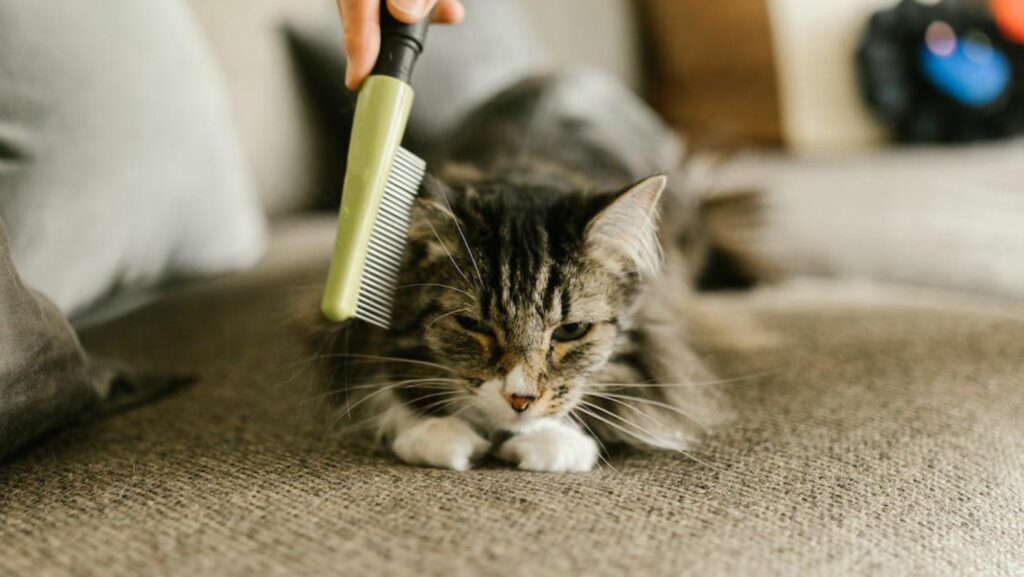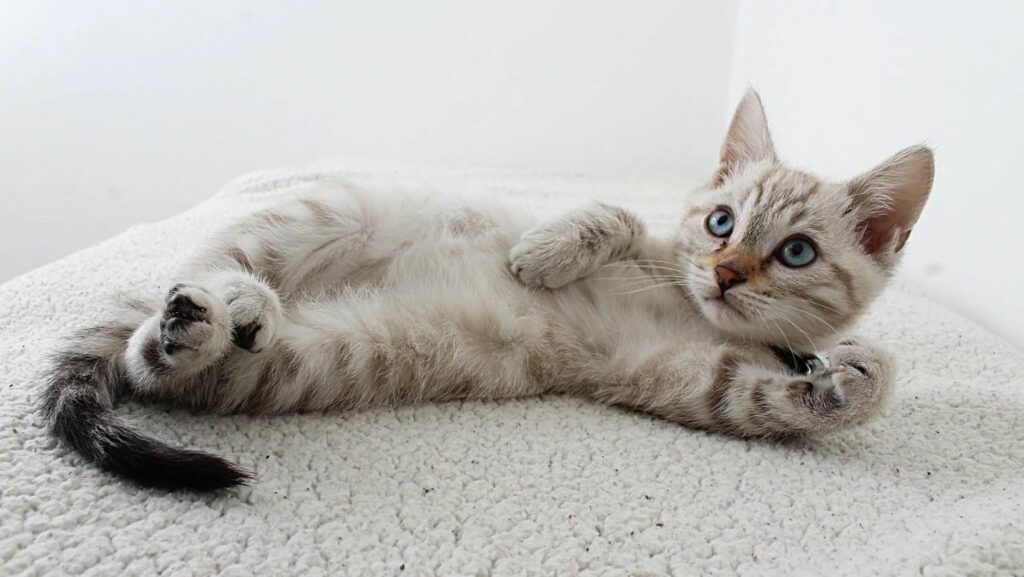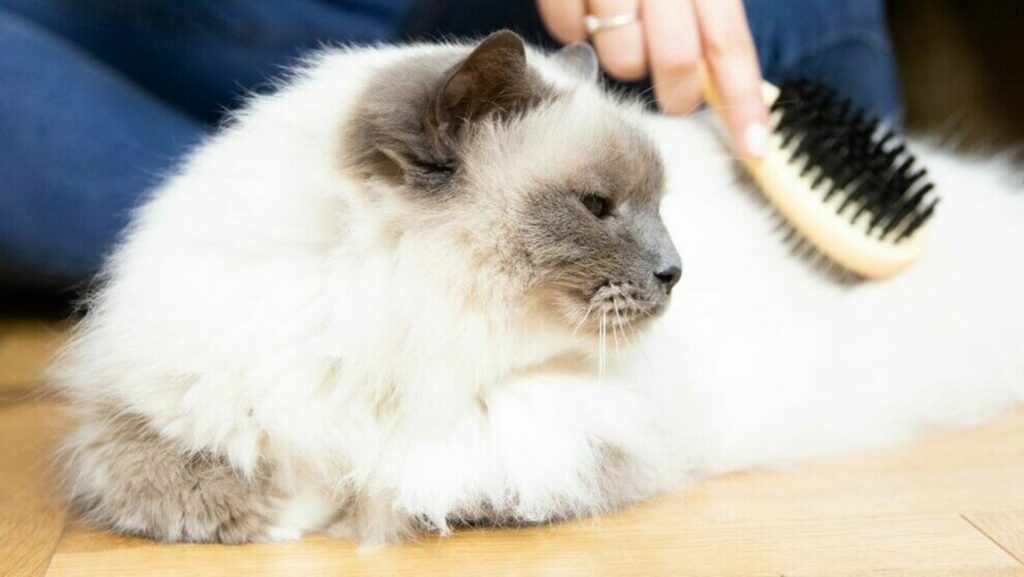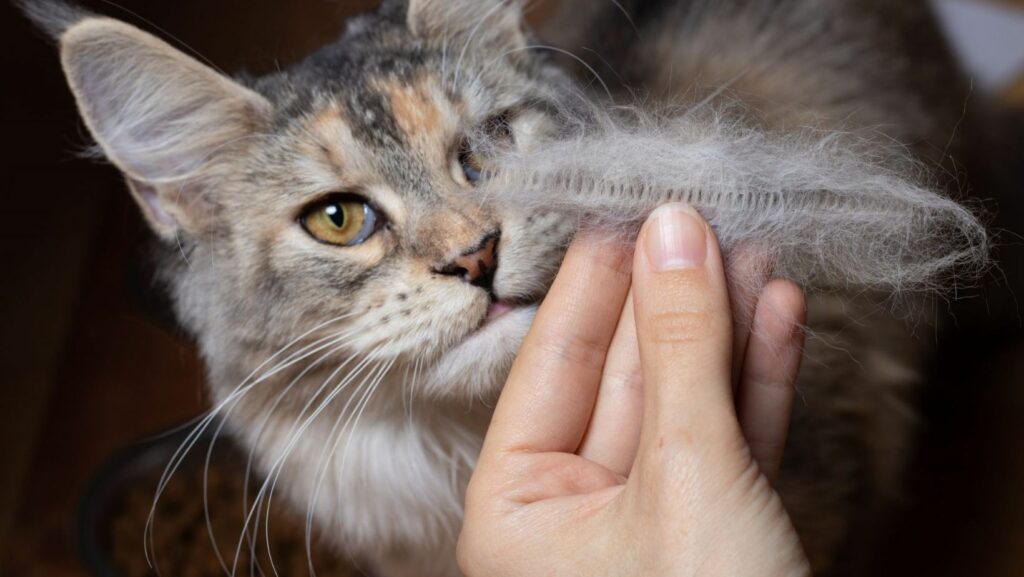Remedies for Cat Hair Loss
As an expert in pet care, I am here to address a common concern among cat owners – remedies for cat hair loss. It can be worrying to see your feline friend experiencing excessive shedding or bald patches, but rest assured, there are remedies available.

Hair loss in cats can be caused by various factors such as dietary deficiencies, stress, parasites, or underlying health conditions. Identifying the root cause is crucial in determining the most effective treatment plan for your cat’s hair loss issue.
In this article, I’ll delve into some proven remedies for cat hair loss that can help improve your cat’s coat health and overall well-being. From nutritional supplements to grooming techniques, we’ll explore different strategies to address hair loss in cats and promote healthy fur growth.
Understanding Cat Hair Loss
When it comes to cat hair loss, understanding the underlying causes is crucial for effective management. Here are key points to consider:

- Normal Shedding: Cats naturally shed their fur, especially during seasonal changes or due to aging.
- Stress and Anxiety: Like humans, cats can experience stress that leads to hair loss. This could be due to changes in their environment, routine, or interactions with other animals.
- Medical Conditions: Various health issues such as allergies, infections, hormonal imbalances, or parasites can contribute to excessive shedding in cats.
As a cat owner, observing your pet’s behavior and monitoring any changes in their coat condition can provide valuable insights into the potential reasons behind hair loss.
Remember that seeking advice from a veterinarian is essential for accurate diagnosis and tailored treatment plans based on your cat’s specific needs. They can conduct tests and examinations to pinpoint the exact cause of your cat’s hair loss and recommend appropriate solutions.
By staying vigilant and proactive about your cat’s health and well-being, you can address hair loss issues promptly and ensure a happy and healthy life for your feline companion.
Natural Remedies for Cat Hair Loss
When it comes to addressing cat hair loss, some pet owners prefer NATURAL REMEDIES over conventional treatments. These natural approaches can be gentle on your feline friend and may help promote healthy skin and coat. Here are a few strategies you can consider:

- Balanced Diet: Ensuring that your cat is receiving proper nutrition is essential for maintaining a luscious coat. Foods rich in Omega-3 fatty acids, such as fish oil or flaxseed oil, can aid in skin health and potentially reduce shedding.
- Regular Grooming: Brushing your cat regularly not only helps remove loose fur but also stimulates circulation and distributes natural oils throughout the coat. This simple practice can prevent matting and promote healthier hair growth.
- Aloe Vera Gel: Aloe vera is known for its soothing properties and can be applied topically to irritated skin. It may help alleviate itching or inflammation that could be contributing to hair loss in cats.
- Herbal Supplements: Some herbal supplements like chamomile or calendula have anti-inflammatory properties that might benefit cats experiencing skin issues leading to hair loss. Consulting with a veterinarian before introducing any new supplements is crucial.
Implementing these NATURAL REMEDIES into your cat’s routine may support their overall well-being while addressing the issue of hair loss holistically. Remember, every cat is unique, so observing how your furry companion responds to these remedies is key in determining their effectiveness.
After exploring various remedies for cat hair loss, it’s evident that a combination of approaches can be effective in addressing this common issue. By incorporating both dietary changes and grooming techniques, cat owners can help promote healthy skin and coat for their feline companions.
Incorporating omega-3 fatty acids into a cat’s diet can play a significant role in improving skin health and reducing excessive shedding. Additionally, regular grooming sessions not only help distribute natural oils but also provide an opportunity to detect any underlying skin conditions early on.
Remember, it’s essential to consult with a veterinarian before implementing any new remedies to ensure they are suitable for your cat’s specific needs. By taking a proactive approach and being consistent with the chosen remedies, you’ll be better equipped to support your cat’s overall well-being and maintain a luscious coat.

